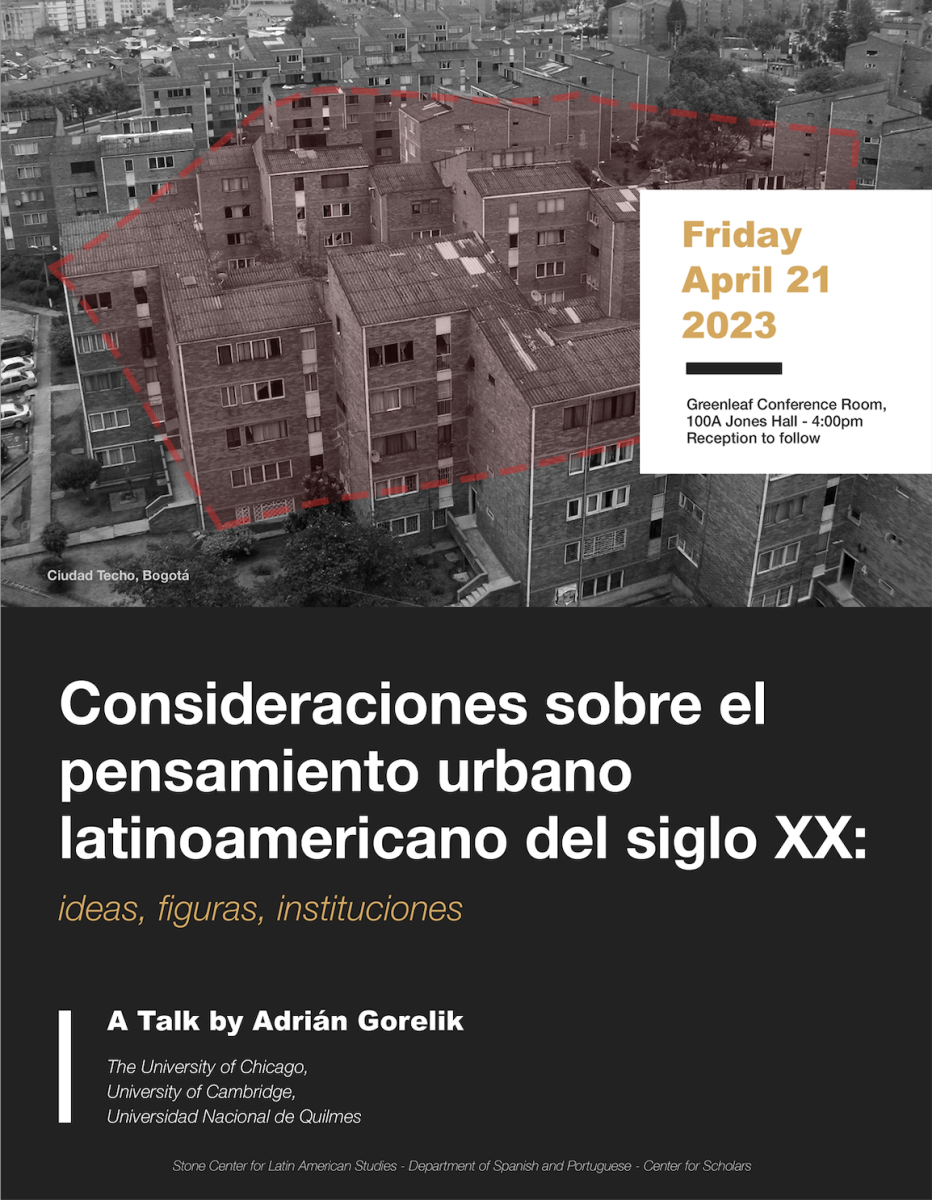Home / Considerations on Latin American Urban Thought of the 20th Century: Ideas, Figures, and Institutions with Adrián Gorelik
April 21, 2023 4:00 PM
Uptown Campus
Adrian Gorelik is an architect and holds a PhD in History, both from the University of Buenos Aires. He is a researcher at CONICET, Full Professor at Universidad Nacional de Quilmes, and Tinker Visiting Professor of History at the University of Chicago. He was granted a Guggenheim Fellowship in 2003 and the Simon Bolívar Chair at the University of Cambridge in 2011. He has been Visiting Professor at the Centre of Latin American Studies, at University of Cambridge (2002 and 2011), at the Instituto de Estudios Urbanos, Pontifica Universidad Católica de Chile (2004), at the Graduate School of Design, Harvard University (2005 and 2014) and at the Programa de Pós-graduação em Historia de Arquitetura da Universidade de São Paulo (2007).
He is the author of La grilla y el parque. Espacio público y cultura urbana en Buenos Aires (Buenos Aires, 1998); Miradas sobre Buenos Aires. Historia cultural y crítica urbana (Buenos Aires, 2004); Das vanguardas a Brasília. Cultura urbana e arquitetura na América Latina (Belo Horizonte, 2005); Correspondencias. Arquitectura, ciudad, cultura (Buenos Aires, 2011), and La ciudad latinoamericana: una figura de la imaginación social del siglo XX (Buenos Aires, 2022).
Drawing from his last book La ciudad latinoamericana, this lecture will focus on a particularly rich period in Latin America, between the 1940s and the 1970s, a cycle of intense material and ideological transformations, in which ideas of the city played an important role. It will show the emergence of a network of ideas, figures, and institutions for the study and intervention on the city and the territory, under the command of the idea of "planning." The general framework is given by the relations between Latin American countries and the United States, in the period of maximum global expansion of the North American power and, more specifically, of a North American way of planning; a kind of relations that will describe during that cycle a rapid evolution from optimistic reformism to the hostile climate of the Cold War.
The event will be held in Spanish, welcome questions in English, and is sponsored by the Stone Center for Latin American Studies, the Department of Spanish and Portuguese, and the Center for Scholars.
